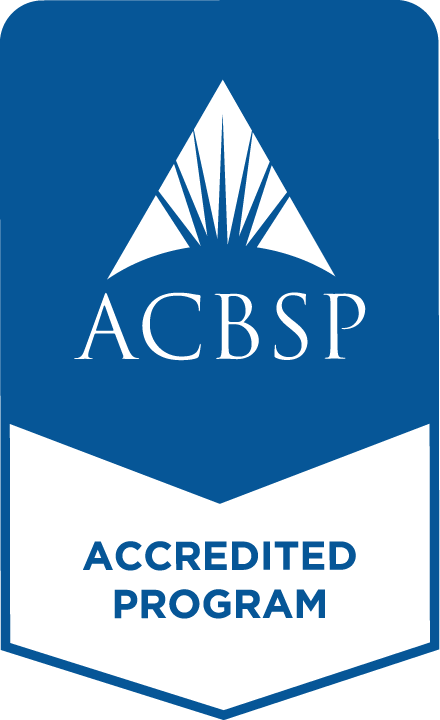The College of Business and Aviation at Delta State offers a Master of Business Administration (MBA). Our MBA program includes a mixture of in-person and online courses. This 30-hour program was developed for working business professionals and recent graduates seeking to expand their interpersonal, managerial, and leadership skills. With 4 business concentrations to choose from, we have many options for those looking to advance their careers.
The program can be completed in as little as one year, but students are encouraged to work at their own pace. The program is specifically designed to accommodate the busy schedules of business professionals. Pursue a more fulfilling career in a new profession, or prepare for increased versatility, advancement, and promotional opportunities by enrolling today. A fully-online one-year option is also available through the Integrated MBA program.
Credit Hours
(10 classes)
Student-Faculty Ratio
No
GMAT Requirement
Why Get a Business Master’s Degree at DSU?
Our comprehensive Business Administration master’s program provides you with the tools and skills to meet the demands of a dynamic global business environment. Our curriculum emphasizes the primary functions of management – in both application and theory – and decision-making through analytic and data driven research.
- Applications accepted year round
- Flexible enrollment
- Online student advisement
- Complete at your own pace



Concentrations in the M.B.A.

General Business
The General Business concentration integrates the concepts of strategic planning such as visioning and adapting to internal and external environmental changes, managing the physical operations, and the utilization of information technology to improve the effectiveness and efficiency of the business. In an organization setting ranging from a small business to a global corporation, students develop goals, strategies, and timetables to implement a strategic planning process. This concentration focuses on developing the managerial and leadership skills critical for success in the twenty-first century.

Healthcare Administration
The Healthcare Administration concentration integrates the concepts of strategic planning such as visioning and adapting to internal and external environmental changes within the health care industry. Core business principles and practices of health care issues are taught to prepare students to effectively manage health care organizations.

Human Resources Management
The Human Resources Management concentration integrates human resource concepts through an examination of the characteristics and design of performance appraisal systems and the development of effective systems for selecting, classifying, and placing personnel. It covers the theory and practice of compensation management and the effect of alternative wage and salary systems on employee performance. This concentration includes content on current legislation and issues in human resource management.

Information Systems Management
The Information Systems Management concentration integrates the knowledge and skills in data warehousing and data mining technologies required for solving complex problems of data and information management, information retrieval, and knowledge discovery facing modern organizations. It includes the conceptualization, design, and implementation of supply chains in dynamic global markets that strategically utilize information technologies to improve decision-making regarding resources, logistics, procurement, and supply contracting; product and process design; and revenue management, inventory, risk management, mining of corporate data warehouses, and the concepts of enterprise resource planning (ERP) to provide for effective data-driven decision-making for the formulation and execution of business strategies.
What Can I Do With a Master’s Degree
in Business Administration?
One of the primary benefits of a Business Administration master’s degree is the acceleration and trajectory of your career. These are critical leadership skills that help business professionals move up the ranks in their organizations. MBAs are appropriate for students from a wide range of industry and educational backgrounds: business, computer science, technology, arts, sciences, engineering, medical, nonprofit, and more. Our MBA program trains you to solve complex problems and make informed decisions while providing you with the hard and soft skills needed in business.
MBAs position employees for higher earnings. According to the 2023 GMAC Corporate Recruiter Survey, even after accounting for inflation, employers project higher 2023 MBA salaries in the U.S. compared to 2022 projections. In 2021, the average starting salary for MBA holders was 22-40% higher than for bachelor’s degree holders. The GMAC report found that full-time North American MBA students received a 50% median compensation increase from pre-MBA to post-graduation: from $80,000 to $120,000.
Companies like FedEx, Retzer Resources, Baxter, North Sunflower Medical Center, Bolivar Medical Center, Walmart, Planters Bank, Cleveland State Bank, BankPlus, MS Secretary of State’s Office, Humana, and many others have hired Delta State MBA alumni.

”Being from another country, my main focus was to find somewhere where I felt at home and included. Delta State surpassed my expectations! Also the class schedule was accommodating, I could work and then go to class.
Katheryne Valencia, M.B.A. majorClass of 2022
Graduate Funding Opportunities
Graduate students at Delta State University have a number of funding opportunities available to them, including Graduate Assistantships, fellowships, scholarships, and loans. In addition, we also offer an affordable tuition rate with no additional fees for out-of-state students. We work closely with students to identify and apply for federal and state financial aid programs, as well as student loans and state scholarships. We are committed to providing our students with all of the tools necessary to succeed in the education field, including access to affordable education and financial support.
Program Goals
The purpose of an MBA is to provide training in theory and practice of business management. The MBA program is for professionals and managers seeking to add to their skill set in anticipation of increased career opportunities, as well as recent graduates looking to continue their studies. We give you the tools you need to advance in your field while maximizing the value of the career experience you already possess.

Admission Requirements
The following is required to be admitted into the Master of Business Administration program.
- Has earned a baccalaureate degree which is fully accredited by one of the recognized accrediting agencies, and meets all other requirements for admission to Graduate School.
- 3.0 GPA (exceptions may be made if applicant has 4+ years of professional experience*).
Admission with Academic Conditions. An applicant with a minimum undergraduate GPA of less than 3.0 or work experience may be admitted conditionally with an academic hold. The applicant must earn at least a “B” in each of the first 3 courses in order to continue in the program.
Applicants lacking undergraduate preparation in business courses (with a grade of “C” or higher) will be required to take MBA foundation courses and earn at least a grade of “B.”
Required undergraduate courses needed to avoid MBA foundation courses include:
| MBA Foundation Course | Undergraduate Courses |
| MBA 515: Managerial Accounting/ Finance | ACC 320: Managerial Accounting FIN 300: Business Finance |
| MBA 525: Management Theory/ Business Law | GBA 220: Legal Environment of Business MGT 300: Principles of Management |
| MBA 535: Economics/ Marketing Theory | ECO 210: Principles of Macroeconomics ECO 211: Principles of Microeconomics MKT 300: Marketing Principles |
| MBA 545: Statistics/ Information Systems | MGT 200: Statistics CIS 205: Microcomputer Applications |
*Note: Years of experience should be managerial/supervisory or professional-level work experience.
Curriculum
Total required credit hours: 30 hours
To graduate, students must have a minimum GPA of 3.0.
Core MBA Requirements
| Course Number | Course Title | Credits |
| ACC 600 | Managerial Accounting | 3 |
| ECO 612 | Managerial Economics | 3 |
| FIN 600 | Financial Management | 3 |
| XXX 601 | Survey of Business Analytics* | 3 |
| MKT 600 | Strategic Marketing | 3 |
| MGT 605 | Human Resource Management | 3 |
| MGT 695 | Strategic Project Management** | 3 |
| TOTAL | 21 | |
*Note: The 601 course can be taken as CIS, FIN, MGT, or MKT but can only be taken for 3 credit hours.
**MGT 695 is not required for Information Systems Management Concentration
General Business Administration
| Course Number | Course Title | Credits |
| – | Any graduate-level business course, not listed as a core MBA requirement or an MBA foundation course, is considered to be an elective. | 9 |
| TOTAL | 9 | |
Healthcare Administration
| Course Number | Course Title | Credits |
| MGT 622 | Health Care Risk Management | 3 |
| MGT 650 | Health Care Law and Ethics | 3 |
| MGT 670 | Health Care Management and Policies | 3 |
| TOTAL | 9 | |
Human Resource Management
| Course Number | Course Title | Credits |
| MGT 620 | Recruitment, Selection, and Performance Appraisal | 3 |
| MGT 655 | Wage and Salary Administration | 3 |
| MGT 660 | Human Resource Legislation and Current Issues | 3 |
| TOTAL | 9 | |
Information Systems Management
| Course Number | Course Title | Credits |
| CIS 606 | Enterprise Data Warehousing | 3 |
| CIS 618 | Business Intelligence | 3 |
| CIS 624 | Enterprise Resource Planning | 3 |
| CIS 630 | Information Technology Strategy | 3 |
| TOTAL | 12 | |
Degree Requirements
Candidates for the MBA are required to meet the following criteria:
- Fulfill the general requirements for a graduate degree at Delta State University.
- Complete, secure approval for, and file a Program of Study.
- Complete a minimum of 30 semester hours of graduate credits consisting of 18 hours in core business courses and 12 hours of approved electives (emphasis area).
- Include in the program of study a minimum of 24 semester hours of 600-level courses.
- Earn and maintain a G.P.A. of at least 3.0 overall and 3.0 in an emphasis area.
Students who earn grades of three “C’s” or one grade of “D” or “F” will be dismissed from the program.
For more information on degree requirements, specifics on courses needed to complete the degree, and policies, consult the Graduate Academic Catalog.
Program Coordinator
Debbie Heslep
Graduate Business Programs Coordinator
E: dheslep@deltastate.edu
P: (662) 846-4200

